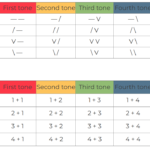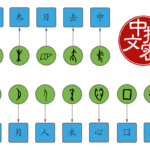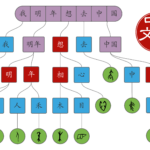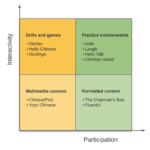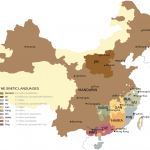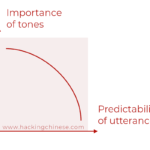Articles tagged with ‘Podcast episode’ Page 10
-
A smart method to discover problems with Mandarin sounds and tones
It’s often hard to assess one’s own pronunciation when learning Mandarin. People around you might understand what you are saying, but that doesn’t necessarily mean your tones are good. Simply asking people if your pronunciation is good won’t work either, because they will often tell you that your pronunciation is good even if it’s not. So how can you find out how good your pronunciation really is?
Read → -
The building blocks of Chinese, part 2: Basic characters, components and radicals
Most Chinese characters are compounds consisting of two or more components, but some components are in themselves compounds that can be further broken down. But how do you know where to stop? And how do you learn and remember the most basic building blocks?
Read → -
The building blocks of Chinese, part 1: Chinese characters and words in a nutshell
Learning to read and write Chinese is a daunting task, but the challenge becomes more manageable if you focus on learning the building blocks, learning how components form characters and how characters form words. This article is the first part in a series helping adult students make sens of Chinese characters.
Read → -
Hacking Chinese Podcast one-year anniversary Q&A
How do you study Chinese when you’re busy with other things? How do you cope with a Chinese course that is too hard for you? And are translated texts okay to use for reading practice?
Read → -
Chinese language logging, part 3: Tools and resources for keeping track of your learning
Logging you language learning can be very useful, and there are many tools and resources out there to help you, but which are the best and how do you use them?Logging you language learning can be very useful, and there are many tools and resources out there to help you, but which are the best and how do you use them?
Read → -
Chinese language learning in the twenty-first century: Towards a digital ecosystem? Interview with Julien Leyre
Digital resources have made learning Chinese considerably easier than it used to be, but another problem has appeared: How can we make sense of and navigate the vast number of resources and find what’s best for us?
Read → -
The benefits of using Wikipedia to look up words when learning Chinese
Wikipedia is an encyclopedia, not a dictionary, but did you know that it can be better than a dictionary for looking up words when learning Chinese?
Read → -
The new HSK 3.0: What you need to know
On July 1st, 2021, a new Chinese proficiency standard takes effect. This will have big consequences for the HSK, the most widely used proficiency test for non-native speakers. What are these changes and what do they mean for you as a student?
Read → -
Learning to understand regionally accented Mandarin
As soon as you leave the classroom, you will notice that people don’t speak Chinese the way your teacher and textbook do. Why is that, and what can you do to learn to understand regionally accented Mandarin?
Read → -
The importance of tones is inversely proportional to the predictability of what you say
Tones in Mandarin carry roughly as much information as vowels do, but still some people insist that tones are not very important, or even that native speakers don’t really use tones. Why is that and what can we learn from digging deeper into this misconception?
Read →
